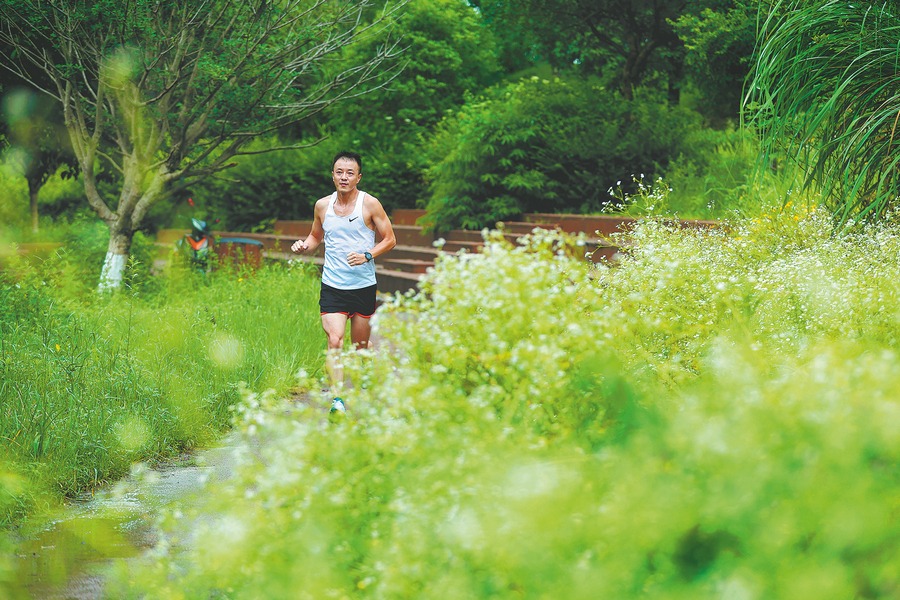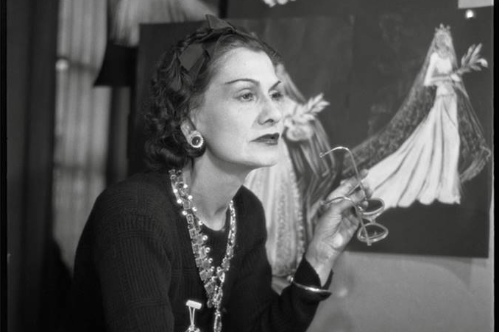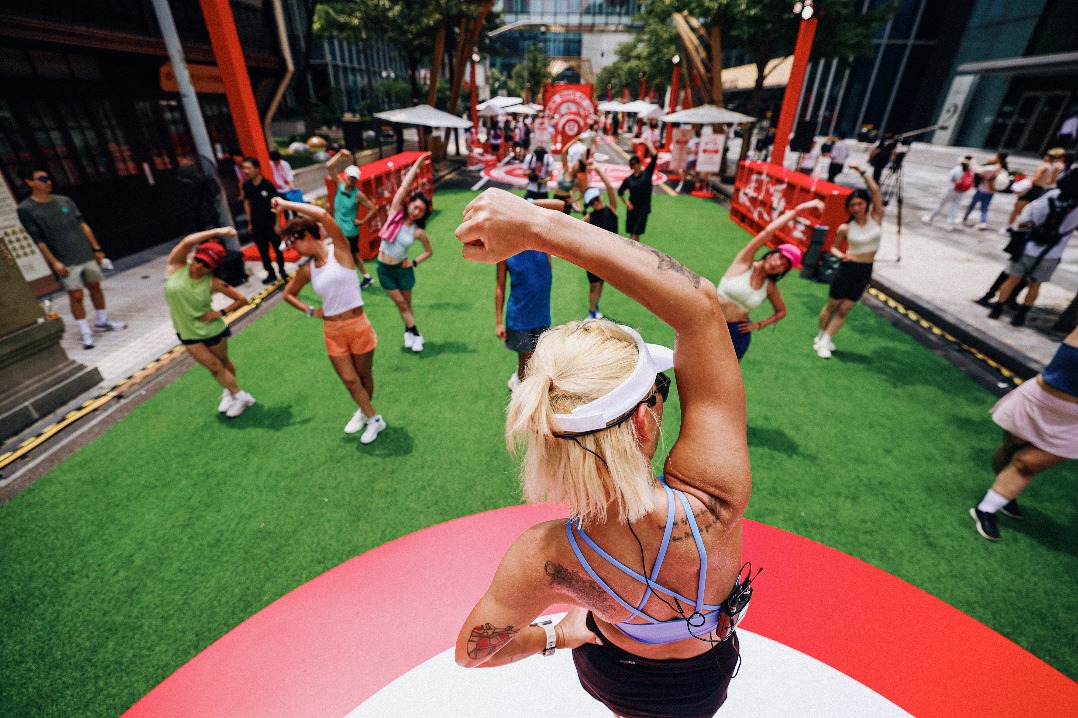Redefine societal beauty norms


Young women in China are reshaping beauty ideals, moving beyond traditional norms toward embracing strength and self-empowerment through sports and fitness, Gui Qian reports.
Narrow faces, waists as slender as an A4 sheet of paper, and legs as slim as an iPhone 6 — these were once celebrated beauty standards on Chinese social media, highlighting people's — especially young women's — strong desire for a skinny figure.
Yet, these internet-driven trends seem to be fading away as girls engaged in sports and bodybuilding are gaining increased visibility and popularity.
"I've noticed that more girls are now prioritizing their own happiness and well-being over their body image. Our previous beauty ideals were heavily influenced by idol dramas, favoring pale, slender, and youthful looks. But as we mature, we strive to take control of our own lives," said Zhang Xiao, a 26-year-old from Jinan, East China's Shandong province.
Having graduated from the School of Business at Beijing Sport University, where she majored in sports industry and management, Zhang now works at an internet company. Like many young women, she too went through a phase where fitting into Brandy Melville's clothing seemed like the ultimate aspiration.
She recalled the brand's arrival in China in September 2019, known for its short, tight, and revealing designs available only in the smallest sizes — creating the phenomenon of "BM girls" on social media, making the "BM style" a coveted trend among young Chinese women.
Identifying herself as a "BM girl "at that time, Zhang remembered, "I felt proud wearing it and looking good in it. I enjoyed being one of those attractive girls who could fit into BM clothes as portrayed on social media."
However, reflecting on those days, Zhang was startled by the harsh standards she once imposed on herself to conform to the "perfect girl image" depicted online.
To achieve her desired figure, Zhang restricted herself to one meal a day — usually a light hotpot without oil or carbohydrates. She used leg slimming massagers daily until her skin turned red and even seriously considered liposuction to achieve the slender waist and neck she wanted, which exercise alone couldn't provide.
"There was a time when I scrutinized every flaw on my body. I suppose I must have had some kind of psychological issues back then," she confessed.
Despite standing at 170 cm and weighing slightly over 50 kg, Zhang managed to trim down to 48 kg through these extreme measures.
Zhang's experience is not an isolated one.
Dai He, a 34-year-old jewelry designer from Shenyang, Northeast China's Liaoning province, and a national champion in freediving, also resorted to extreme weight loss approaches in pursuit of societal beauty ideals.
She experimented with acupuncture, sauna sessions, the Copenhagen diet, and even tried eating only apples for a week.
Such experience is also familiar to Yu Jiayue, a 28-year-old from Tonghua, Northeast China's Jilin province, who is now a model and sports influencer with over 270,000 followers on the Chinese lifestyle-sharing platform Xiaohongshu.
Owning a fit and muscular physique now, she underwent a period of both physical and psychological torment around nine years ago when she first joined her university's modeling club due to her height.
"At that time, I felt deeply inadequate compared to other models, so I went to extreme lengths to lose nearly 10 kg," Yu recalled.
"I wouldn't step outside my dorm room without makeup, not even just to take out the trash. If I had to, I'd wear a mask. It's only in the past two years that my body and appearance anxieties have begun to ease."
Reflecting on the painful struggles these women face with their bodies, Zhang said, "How did weight loss become such a dominant focus for so many women aged 18 to over 30? Unbelievable."
Winds of change
Zhang's transformation began during the COVID-19 pandemic when she came to realize the paramount importance of health. She started eating well and exercising, eventually joining a rock climbing club where she discovered a newfound passion for sports.
Currently, she visits climbing gyms more than three times a week and engages in daily strength training. Her hands have toughened with calluses, her body has grown more muscular, and she feels stronger each day. Gradually, her focus shifted away from the pursuit of slimness.
"Many girls simply lack the initial push to start their fitness journey. Any sport can be enjoyable if it resonates with them, motivating them to dedicate time each week," she said.
Dai has also witnessed a significant change, noting a decline in body shaming. "Several years ago, wearing leggings in public would draw stares. Nowadays, regardless of body shape, more girls confidently wear whatever they choose. In workplaces, gyms, and various other settings, you can see more self-assured women embracing their unique styles," she said.
"It's not that being slim and fair-skinned is no longer desirable, but beauty standards have diversified and become more inclusive. Chinese girls with darker complexions and more muscular physiques can now take pride in symbolizing strength, speed, and athletic prowess."
Yu's modeling journey may indicate shifts in the market. While mainly collaborating with sports brands, even these brands used to criticize her for being "too muscular" just a few years ago. However, in recent years, the criteria for models have become more flexible and diverse.
"Today, many brands prefer a wide range of models: from slender to muscular, slightly curvy, and more. Instead of merely showcasing body shapes, brands want their models to convey a vibe — a relaxed, joyful energy with contagious enthusiasm," she said.
However, Yu acknowledges that the pressure to lose weight remains a prevalent trend. Even as she shares numerous videos online about fitness and self-acceptance, she continues to receive comments from girls anxious about why they haven't lost weight despite regular exercise.
Possible remedies
Yu describes herself as a "developmental" influencer. Since starting her fitness journey and becoming a vlogger about seven years ago, she has experienced emotional highs and lows similar to those of her followers. She firmly believes in the transformative power of exercise.
"For me, working out is life-changing. It has shaped both my inner and outer self," she said.
According to her, the positive impact of exercise on the body is immediate and noticeable, creating a sense of continuous progress. The joy and confidence gained from achieving fitness goals can also extend to other aspects of life, boosting self-esteem, patience, and inner peace. At the same time, a better physique naturally follows as a byproduct.
For Zhang, developing a deeper sense of self-awareness is crucial in easing concerns related to appearance and body image. Through rock climbing, she has learned to use her body more effectively and discovered her potential and capabilities.
"The critical gazes and self-doubt many girls direct toward themselves often stem from a lack of strong self-awareness, leaning too heavily on the approval of others," she said. "Products that promise to 'enhance beauty' exploit this insecurity. Once girls transcend this, they can appreciate their bodies without constantly seeing flaws."
While Dai no longer struggles with appearance-related anxieties, she remains "attentive" to her physique. "I don't care how others see me, but I maintain my own aesthetic standards and strive to uphold them," she said.
"When I was overweight or weak in the past, I felt disconnected from my body, less sensitive, and constantly tired. Through exercise, I began to appreciate the strength and intricacies of my body, finding joy in rediscovering and understanding myself."
Dai believes an ideal woman is someone with a unique style and confidence. For her, style reflects a person's inner stability — whether sporty, traditional Chinese, nature-inspired, or casual, she embraces her distinctiveness. Confidence, she asserts, arises from having "a little world of her own" — be it professional accomplishments or dedication to hobbies.
"Our country is so vast that people's lifestyles and states of living are very different. So why should beauty standards be the same?" said Dai. "I hope those who still hold narrow views on beauty and excessively scrutinize women can catch up and evolve."




































